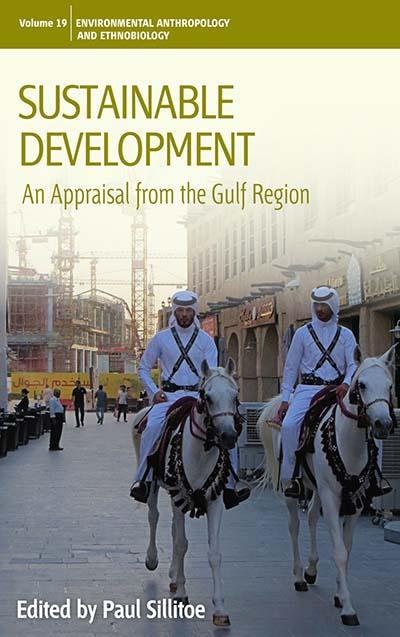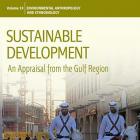Sillitoe, Paul, ed. Sustainable Development: An Appraisal from the Gulf Region. New York: Berghahn Books, 2014.
With growing evidence of unsustainable use of the world’s resources, such as hydrocarbon reserves, and related environmental pollution, as in alarming climate change predictions, sustainable development is arguably the prominent issue of the 21st century. This volume gives a wide ranging introduction focusing on the arid Gulf region, where the challenges of sustainable development are starkly evident. The Gulf relies on non-renewable oil and gas exports to supply the world’s insatiable CO2 emitting energy demands, and has built unsustainable conurbations with water supplies dependent on energy hungry desalination plants and deep aquifers pumped beyond natural replenishment rates. Sustainable Development has an interdisciplinary focus, bringing together university faculty and government personnel from the Gulf, Europe, and North America – including social and natural scientists, environmentalists and economists, architects and planners – to discuss topics such as sustainable natural resource use and urbanization, industrial and technological development, economy and politics, history and geography. (Text from Berghahn Books)
Studies in Environmental Anthropology and Ethnobiology is an international series based at the University of Kent at Canterbury. It is a vehicle for publishing up-to-date monographs and edited works on particular issues, themes, places or peoples which focus on the interrelationship between society, culture and the environment.



